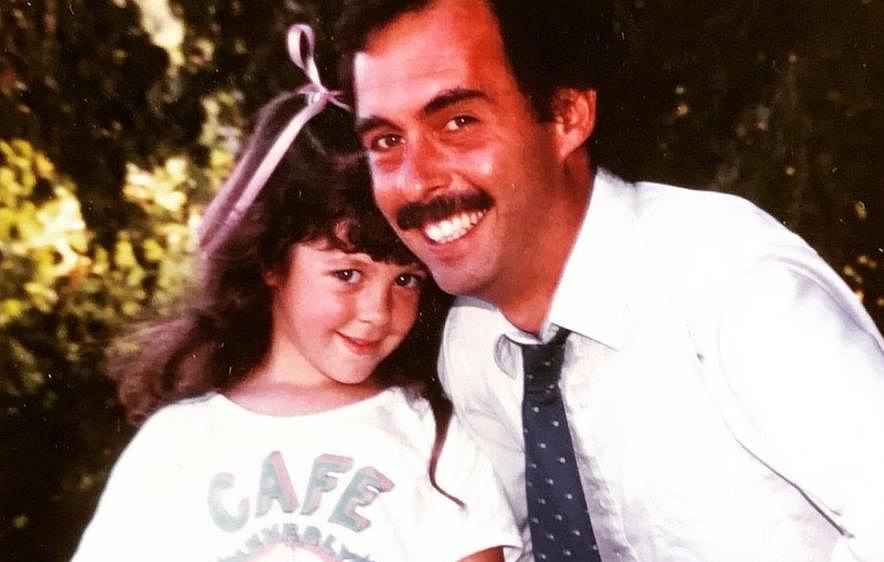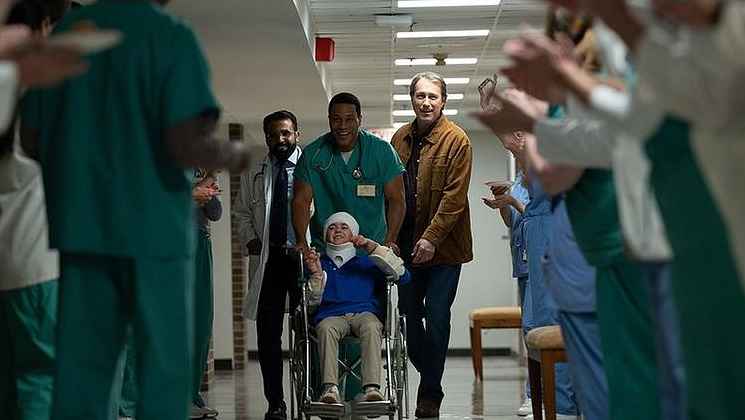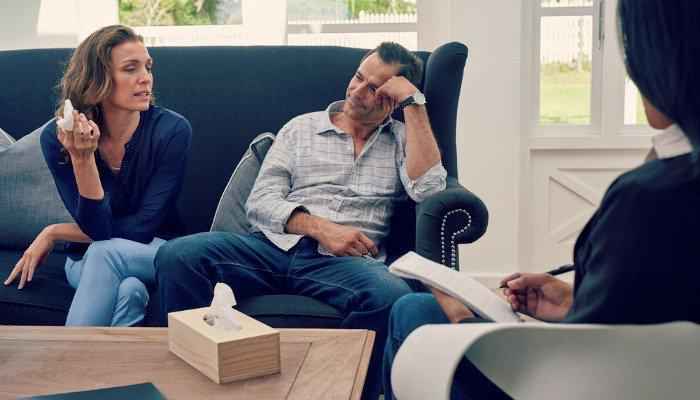





See listing of Recent and Most Popular articles on the Home Page
Connections
Category: Relationships / Topics: Coping • Family • Relationships • Wellness
Confronting Marital Problems
by Ken Potts
Posted: November 17, 2019
How counseling can help couples…
Just once, can we figure out what we've been doin' wrong?"
These words, sung so plaintively by James Ingram in the classic oldie "Just Once" captures the painful dilemma of many marriages.
This early 1980s song by Ingram and co?writer Quincy Jones goes on to describe a relationship fraught with conflict. The same problems seem to surface over and over again. Nothing ever gets solved; one or the other person just winds up walking out for a day, a week, a month.
Yet somehow, perhaps because there is a real love that binds these two people, they find themselves back together again but destined to repeat the pattern.
"Just Once" is a painfully sad song for us because it is so true to life. So many of the couples I see in counseling are struggling with such problems that have slowly poisoned their relationship for years, sometimes decades.
As they slowly unfold the story of their marriages for me, they soon realize their present conflict is simply one more go around for a problem they have been failing to deal with for most of their married life.
Such destructive patterns are always hard to break. Too often, by the time couples reach my office, they have simply waited too long to try. They have lost the faith and trust in each other and in themselves needed to rebuild their marriage.
Failing to deal with chronic marital problems until it is too late seems to be the norm in our society.
Depending on the source, it is estimated that somewhere between one?third and half of all marriages will end in divorce. And one wonders how many of the rest will perpetually totter along on the brink of disaster.
Why can't we, just once, figure out what we've been doing wrong? And, do it before it is too late?
There are a number of reasons.
Often we fail to deal with our relational problems because we aren't aware of them. I see many couples in which one partner is totally shocked by the other's deep dissatisfaction with their marriage.
"I never knew!" Too busy at work, with the kids, or with our own interests, inattentive, we fail to see that our husband or wife is hurting.
In other marriages, problems get ignored simply because they aren't seen as problems. Sure, we fight all the time. And one or the other of us walks out every once in a while. But so did our parents. So do most of our friends. Isn't that just the way marriage is?
We fail to realize that isn't the way healthy marriages are, and ours falls apart or stagnates just like our parents' did or our friend's are.
There is a third reason for our failure to work on marital problems. Many of us don't know what to do. We are unable to see any options other than just learning to live with our problems, separating, or divorcing. What other choices, we ask, are there?
Even those of us who are aware of the growing number of trained marriage counselors often fail to use them. We may doubt our spouse's willingness to work on our problems. Or we may question whether a marriage counselor can really do any good. Why should we start anything that we don't think is going to work?
And sometimes we avoid such assistance out of fear. We are afraid to be seen as people who cannot handle our own problems, who need help. We don't want our friends and family to know that we are seeing a "shrink."
We may also be fearful of counseling because of the tension, hurt and change we suspect it will involve. Confronting our problems is bound to be an unpleasant, painful experience. And, at its best, counseling will require that we make some adjustments in how we see things and how we behave. That's not easy.
If there are all these reasons not to "figure out what we've been doing wrong," then why do some of us decide to try? And why do some of us decide to get help from a professional marriage counselor?
Obviously, when we try to tackle our chronic marital problems, we are aware that we are in trouble. And we also have realized that if we don't work on our problems now, they will just get worse.
Such a realization is always frightening and painful. But it is often these uncomfortable feelings that can motivate us to get professional help. Faced with the mess we've made of our marriages, we are able to confess to ourselves that we aren't going to do any better trying to put it back together on our own.
If we are really committed to our marriages, and have some faith in ourselves and each other, then getting help is the next logical step. We find and use the best marriage counselor around. And we work hard with that counselor to try to straighten things out.
There is one final reason some of us choose to try counseling when our marriage seems headed for the junk heap. We realize that, as difficult as counseling can be, it is better than the alternative: the road leading toward separation and divorce.
If you sense that things aren't as they should be in your marriage, you might share this article with your spouse as the first step in putting things right. Certainly the next steps will not be easy, but often the first is the most difficult. And you may be surprised to find that you spouse is just as concerned as you are, and just as willing to get the help you need. Take the risk.
Search all articles by Ken Potts
Dr. Ken Potts is on the staff of SamaraCare Counseling Center in Naperville and Downers Grove, Illinois. • E-mail the author (gro.gnilesnuoceracaramas@sttopk*) • Author's website (personal or primary**)* For web-based email, you may need to copy and paste the address yourself.
** opens in a new tab or window. Close it to return here.
Posted: November 17, 2019 Accessed 346 times
![]() Go to the list of most recent Connections Articles
Go to the list of most recent Connections Articles
![]() Search Connections (You can expand the search to the entire site)
Search Connections (You can expand the search to the entire site)
![]() Go to the list of Most Recent and Most Popular Articles across the site (Home Page)
Go to the list of Most Recent and Most Popular Articles across the site (Home Page)
 Loading requested view...
Loading requested view...
